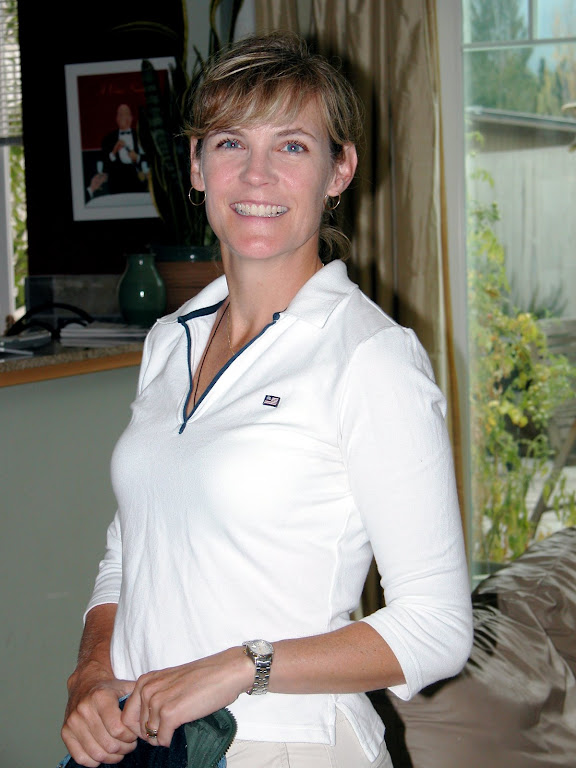 For some reason we didn't celebrate the Conversion of Saint Paul (or more accurately Saul of Tarsus) this morning. This picture by Caravaggio alone is enough to make the trip to Rome worthwhile. It is called the Conversion on the Way to Damascus and is found in the Cerasi Chapel of the church of Santa Maria del Popolo.
For some reason we didn't celebrate the Conversion of Saint Paul (or more accurately Saul of Tarsus) this morning. This picture by Caravaggio alone is enough to make the trip to Rome worthwhile. It is called the Conversion on the Way to Damascus and is found in the Cerasi Chapel of the church of Santa Maria del Popolo.The note on this painting by whoever wrote the Wikipedia entry is very helpful and to my eyes, very truthful too: "On this canvas, Saul is an epileptic and fractured figure, flattened by the divine flash, flinging his arms upward in a funnel. There are three figures in the painting. The commanding muscular horse dominates the canvas, yet it is oblivious to the divine light that defeated his rider's gravity. The aged groom is human, but gazes earthward, also ignorant of the moment of where God intervenes in human traffic. Only Saul, whose gravity and world has been overturned lies supine on the ground, but facing heaven, arms supplicating rescue. The groom can see his shuffling feet, and the horse can plod its hooves, measuring its steps; but both are blind to the miracle and way. They inhabit the unilluminated gloom of the upper canvas." Don't those art historians and critics just give you shivers up and down your spine. Let us hope we may be so lucky as to be in the "illuminated parts of the lower canvas."
But skipping over this momentous occasion in the Acts of the Apostles meant we heard a sample of the Seinfeld of the Hebrew Scriptures for the Old Testament reading: The story of God and Jonah and Nineveh, chief city of Assyria—that "great city" that took three days to walk around, or maybe cover all the neighborhoods—has to be one of the best comic stories in the Bible. I am fairly sure Jason Alexander as George Costanza has played a Jonah-like character in several episodes.
The reading at Mass today left out the best part where Jonah gets very upset with God when his preaching is successful and the Ninevites actually repent of their sinful ways. Part of the reason I like this story so much is that it has some contemporary resonance in that Nineveh is just across the river from present day Mosul, Iraq. There may have been a few modern day Jonahs walking around this area.
And then there is the line from Saint Paul's first Letter to the Corinthians: "I tell you, brothers and sister, the time is running out . . . for the world in its present form is passing away." Apocalyptic shivers run up your leg during that reading.
 And finally we get to the Gospel reading where Jesus says, according to the Gospel of Mark, "This is the time of fulfillment. The Kingdom of God is at hand. Repent, and believe in the gospel." More shivers. This is more than a full plate for me.
And finally we get to the Gospel reading where Jesus says, according to the Gospel of Mark, "This is the time of fulfillment. The Kingdom of God is at hand. Repent, and believe in the gospel." More shivers. This is more than a full plate for me.The Gospel reading goes on to the calling of Andrew and Simon, and then James and his brother John. All of these guys were fishermen and may have lived in or near Bethsaida—some say they were from nearby Capernaum—on the shores of the Sea of Galilee or Lake Kinneret as the present-day Israelis call it.
Apparently over the years the shoreline of the sea or lake has shifted—this whole area is relatively unstable because of underlying tectonic forces—and thus the present day mound of Bethsaida is at least a kilometer away from the present shore of the Sea of Galilee.
They say this area is connected to the Great Rift Valley of Africa. I think plate tectonics is awesome. It must have been an awesome God who thought that one up. And unfortunately the whole area is on the foothills of the Golan Heights, thus raising the possibility that it will one day be given back to Syria, which claimed it for a long time.

I had a very small part in helping to dig up Bethsaida a few years ago. As I remember it we spent most of our 3 weeks there digging up a Bronze age gate. That is Carol sifting dirt to the left. And to the right is the area of the gate with a commemorative stele in the middle. This was hard work, but fun. That is a very ancient red plastic water container on the right side of the picture.










No comments:
Post a Comment